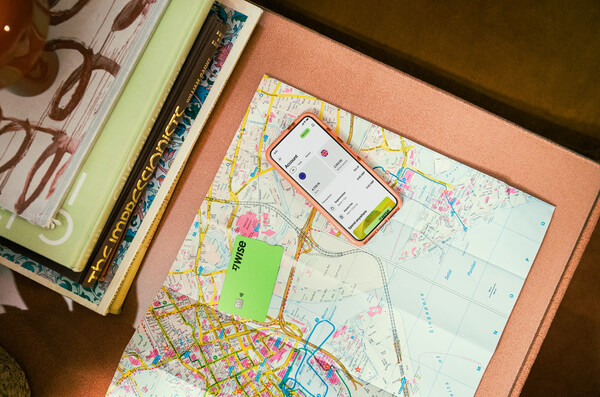Best travel insurance for Bali - Guide to providers, coverage, and more
Planning a trip to Bali from New Zealand? We reviewed the most popular options for Kiwis, comparing coverage, costs and more.

Lush rice terraces, vibrant beach towns, spiritual temples and top notch restaurants - no wonder Bali is a top pick for New Zealanders chasing sun, culture, and relaxation. With affordable flights and a warm tropical climate, Bali remains a favourite for everything from honeymoons and surf trips, to digital nomads and expats seeking the sun.
If you’re planning a visit, you might be wondering whether a visa is required to enter Bali. This guide walks you through Indonesia's visa rules for Kiwi travellers, and how the Wise card can help you save on currency exchange and spend like a local while you're there.
| Table of contents |
|---|
Getting straight to the heart of things, is a Bali visa needed for an NZ passport holder?
Currently, Kiwis don’t need to apply for a visa for stays up to 30 days if they’re visiting Bali for tourism, medical treatment, a family visit or certain business activities.¹ Instead, it’s possible to get a Visa on Arrival.
If you’d like to stay longer you can extend the Visa on Arrival by an additional 30 days, but past that you need to apply for a visa. You also need to apply if you want to study in Bali or work there.
To enter Bali and other parts of Indonesia, these are the basic requirements.¹
- A passport that’s valid for at least six months and has at least one blank page
- An outbound ticket from Indonesia
- Either a visa or eligibility for a Visa on Arrival
You also have to complete two online forms, the Customs Declaration and SATUSEHAT Health Pass.³
- The Customs Declaration can be filled out online up to 2 days before your arrival. Once completed you’ll get a QR code in your email which should be shown to the Indonesia Customs and Excise officers on arrival.
- The SATUSEHAT Heath Pass can be filled out online and must be done before passing through immigration
For the latest information on entry procedures or if you have any questions, you can always refer back to the Indonesian Directorate General of Immigration or the Embassy of the Republic of Indonesia in Wellington.
When preparing for your trip it’s critically important that you check the condition of your passport, as any damage could result in you being denied boarding at the airport or refused entry by Indonesian immigration officers.² They are extremely strict on this, and will reject people whose passports are consider damaged with watermarks, stains, damaged spine, torn or frayed papers. If your passport has any of those, has no blank pages or is within 6 months of the expiry date, it’s best to get a new one before flying to avoid disappointment.
Planning a trip to Bali? Read our guide on the best time to Bali here.
Indonesia, and as a result Bali, has a number of different visas that allow people to visit, live, work and study there. You can find the complete list on the Indonesian Directorate General of Immigration website.
Here’s a few visa options that may be of interest if you’re a Kiwi hoping to live, work or study in Bali.
The B1 Visa on Arrival is for foreigners who want to travel, visit friends and family, or attend business events like conventions and meetings. It allows for a single entry stay of 30 days, which can be extended one time for an additional 30 days.
There are two ways to get the Visa on Arrival:
- Apply online in advance, which then allows you to do the 30 day visa extension online.
- Get a visa on arrival at the Indonesian airport, seaport or land border. If you then want the 30 day visa extension, it must be done at the closest immigration office.
When completing the application process you’ll need to provide a recent passport photo, a copy of the biodata page of your valid passport, and a return or onward ticket to another country.
If you’re looking at doing a short course or some training in Bali, you may be eligible for a C9 Study visa. It’s a single entry visa with an initial stay of 60 days, but can be extended multiple times up to a total of 180 days.
You need a sponsor for this visa who must have an online account with the Directorate General of Immigration. Using the account they apply on your behalf, providing the following documents:
The sponsor can then extend your stay using the same online account.
For those wanting to work in Bali for an Indonesian company there’s the E23 Working Visa, also called the E23 KITAS permit.⁶ With it, you can work for an Indonesian employer, bring eligible family members to live with you, invest and study. It’s a multiple entry visa that allows for stays of up to 180 days, 1 year or 2 years, depending on what you’re granted. It can also be extended.
To get the visa you need to be able to provide these documents:
Love the idea of living in Bali? With an E33E Second Home visa, you can legally live in Indonesia for 5 years.⁷ It offers the possibility of extension and you can come and go as you please.
To apply you need to meet certain conditions and be able to provide these documents:
This visa is designed for people who love Indonesia and want to enjoy living there, so as part of the conditions you’re not allowed to seek work locally.
For remote workers and digital nomads, it’s possible to live and work in Bali with the E33G Remote Worker visa.⁸ It’s a 1 year multiple entry visa that allows you to work for overseas companies, travel, and visit family and friends. To apply for it you need to supply:
One of the main conditions of this visa is you can not work for any individuals or companies in Indonesia, it must be an overseas employer.
The requirements to apply for a visa for Bali vary depending on the visa type, but this is what you could be asked for.
- Valid passport
- Completed visa application form
- Recent colour photo (35mm x 45mm)
- Return or onward ticket
- Proof of funds or income
- Employment contract with a foreign company
- Curriculum Vitae
- Intended travel itinerary
- Letter from a local sponsor
The fees for an Indonesian visa vary depending on the type of visa you’re applying for. These are the fees associated with the visa types mentioned earlier.
| Visa Type | Fee |
|---|---|
| Visa on Arrival (B1)⁴ | Visa fee: IDR 500,000 |
| Study Visit, Courses and Training Visa (C9)⁵ | Visa fee: IDR 1,000,000 Verification cost: IDR 1,000,000 |
| Working Visa (E23)⁶ | 180 day visa fee: IDR 5,250,000 1 year visa fee: IDR 7,000,000 2 year visa fee: IDR 9,500,000 |
| Second Home Visa (E33E)⁷ | Visa fee: IDR 13,000,000 |
| Remote Worker Visa (E33G)⁸ | Visa fee: IDR 7,000,000 |
As you can see the fees are charged in Indonesia rupiah (IDR) so you will need to convert funds from NZD for the payment.
When planning your trip, it's crucial to consider how you'll spend in Bali. High foreign transaction fees or unfavorable exchange rates can quickly inflate your travel costs. The Wise card is a simple way to save up to 8x when you're spending internationally. You can spend in 150+ countries at mid-market rate — basically the rate you see on Google. With no foreign transaction fees and low, transparent pricing, Wise usually gives you the best value for your money.

Simply create a Wise account for free, order a card and top-up NZD to get started. Having a physical Wise card allows you to make chip and pin payments, as well as make some free ATM withdrawals each month for when you're abroad. You can get digital cards and add to your Google or Apple Pay wallet for instant use. Spend directly with the Wise account in NZD and let auto-conversion do the trick or convert in advance to your desired currency. You can hold and exchange 40+ currencies in your Wise account and spend the currencies you hold for free.
Wherever your travel takes you, the Wise card makes spending money abroad cheaper and easier.
This general advice does not take into account your objectives, financial circumstances or needs and you should consider if it is appropriate for you. Savings claim based on our rates vs. selected New Zealand banks and other similar providers in Jan 2025. To learn more please visit https://income-climb.live/nz/compare%3C/a%3E%3C/p%3E
Please see Terms of Use and product availability for your region or visit Wise Fees & Pricing for the most up to date pricing and fee information.
*Please see terms of use and product availability for your region or visit Wise fees and pricing for the most up to date pricing and fee information.
This publication is provided for general information purposes and does not constitute legal, tax or other professional advice from Wise Payments Limited or its subsidiaries and its affiliates, and it is not intended as a substitute for obtaining advice from a financial advisor or any other professional.
We make no representations, warranties or guarantees, whether expressed or implied, that the content in the publication is accurate, complete or up to date.

Planning a trip to Bali from New Zealand? We reviewed the most popular options for Kiwis, comparing coverage, costs and more.

Wondering when the best time to visit Bali is? Learn more about weather, seasons and what to do throughout the year in Bali.

Discover Bali’s beauty from New Zealand with our guide on flights, accommodation, and cultural experiences.